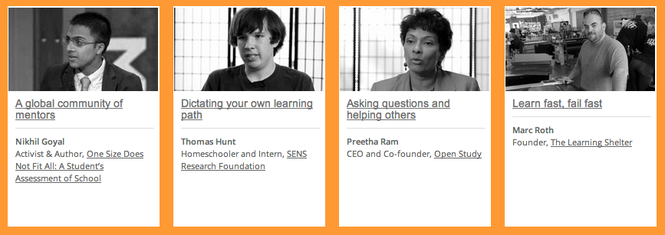Future Now
The IFTF Blog
Can Extreme Learning Be An Extreme Sport?
As we are riveted by the breathtaking performances of snowboarders, downhill racers, and speedskaters at the Sochi Olympics, I wonder: Is there a connection between these feats of human performance and learning? Millions of athletes are attracted to Extreme Sports that extend to surfing, mountain biking, and whitewater kayaking, or just about any sport done extremely.
Could there be such a thing as Extreme Learning? Are there Extreme Learners? How would we define them? At many of its convenings, the Institute for the Future (IFTF) has been hearing from entrepreneurs who are developing new platforms, apps, and technology-enabled goods and services. Many of them have learned new skills and built personal and business networks through their own initiative, powered by their passions and dreams. And many of them are young.
In personality, style, and dedication, they remind us of Extreme Athletes–only their sport is learning. They love to learn. They’re incorrigible about it and irreverent about institutions and their limitations.
At a convening last summer, IFTF staff invited 11 of them to sit around a table and share their work, their learning, and how they got to be that way. It was a remarkable and unusual day, a stimulating conversation among individuals from 16 to 60, spanning three generations. We were brought together—trumping the often cited dividers of age, family background, and geography—as fellow voyagers in a new learning landscape, open anytime, any place, any path, any pace.
To share their stories, we’re producing a new site, extremelearners.iftf.org.

Meet Timmy Yu, who arrived in the U. S. without knowing any English. A coach at his YMCA ignited his discipline and drive. A program called College Track connected him to the California Academy of Sciences. A nonprofit, Streetside Stories, led him to tell his story and help other teens tell theirs. He is now a freshman and Gates Millenium Scholar at UC-Berkeley.
Through studying chemistry, Preetha Ram found her passion and a sense of power and accomplishment. But as a professor teaching it, she found that not all students shared her passion. She set out to build Open Study, a social learning platform, to help every learner find their passion and become an Extreme Learner. The site attracts over 1 million visitors each month.
Nick Winter developed the Skritter app to help Chinese and Japanese language learners master characters more easily and dismantle their “forgetting machines.” As a child, Lenore Edman built a three-story tree house with her Dad. With her husband, she combined her love of crafts, sewing, electronics, and cooking to create Evil Mad Scientist Laboratories, a small business producing “DIY and open-source hardware for art, education, and world domination.”

These Extreme Learners share some common DNA: They are self-organizing their own learning, utilizing courses and extra-curricular activities in schools and universities but also taking advantage of online resources and networks and a wide array of “community learning centers” such as the California Academy of Sciences, TechShop, or Biocurious. They take initiative. As several of them said: “Raise your hand.” “Ask a question. Just keep asking them!” They’re persistent and see mistakes as opportunities to learn. They like to teach as well as learn and build mastery through explaining what they know to others. And they make, create, and invent.
Tell us what you think of their stories. Share your own. I’ll bet you’ll see aspects of yourself in them. Their stories might just inspire you to get more extreme about your own learning, too.
 Milton Chen was a member of IFTF's inaugural class of Future for Good Fellows. The Future for Good Fellowship Program is an IFTF initiative to create visions and develop actions for our collective good.
Milton Chen was a member of IFTF's inaugural class of Future for Good Fellows. The Future for Good Fellowship Program is an IFTF initiative to create visions and develop actions for our collective good.



